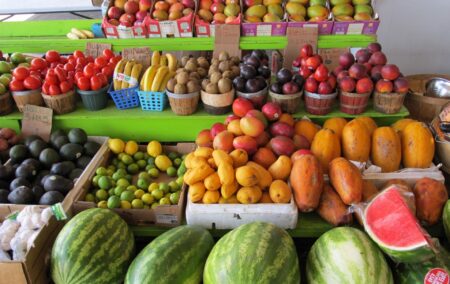The Competition Commission is back in the news again, this time trying to unironically legislate ‘competition’ into being. The final terms of reference for the Fresh Produce Market Inquiry have been released by the Commission, as is required by law. The urge on the part of regulators to fix or correct prices seems to be rearing its head once again.
The Competition Commission will begin the fresh produce market inquiry 20 days after the gazetting of the final terms of reference, which were released on 13 February 2023. The inquiry’s main concern is the high prices. As the released document states: “A fuller understanding of the main drivers of the apparent high prices of fresh produce in South Africa is a critical area that this inquiry may address.”
How can a market regulator affect pricing without creating the unintended consequences associated with that action? It has been well established that price controls create shortages. There is a reason, determined by various factors like the ones listed above as well as other non-economic ones which influence prices, as is the case with fresh produce in South Africa.
Price controls
When a regulator institutes price controls, shortages are usually the result. Contrary to popular belief by those at the Commission and their supporters in the public, entrepreneurs want people to buy their goods or services. The more, the better.
Therefore, from a rational perspective, an entrepreneur who raises prices above what is considered reasonable in the market, not in Pretoria at the Commission offices, but in the market, is a bad entrepreneur and will most likely go out of business.
The Commission cites the ginger and garlic price increases during the Covid pandemic under the sub-heading ‘price gouging.’ This is as if to suggest that retailers and everyone in the ginger and garlic value chain decided to maliciously increase their prices. One wonders whether this ‘inquiry’ has not drawn conclusions before inquiring had even begun.
Terming price increases as ‘gouging’ makes it seem as if there was no increase in demand during the second wave of the pandemic, which was not yet reflected in supply at the time. Prices had to adjust to account for the increased demand for ginger during the second wave, but lower supply that was still premised on demand prior to the second wave.
This is a basic understanding of the economic law of supply and demand and its influence on prices, yet the phenomenon is still called price gouging, with the associated malicious connotation. The whole reason behind this inquiry is so that prices, something best left to the market to determine, should be influenced and determined by third parties such as regulators, instead of the two parties (buyer and seller) voluntarily making a trade.
Three focus areas
The commission lists three focus areas for its inquiry. These are: barriers to entry in the fresh produce value chain; the market dynamics and impact of inputs like seed and fertiliser on the production activities of farmers; and the alleged lack of competition and inefficiency of fresh produce market facilities. These focus areas will act as markers for the Commission in its inquiry and crusade against high prices.
The barriers to entry faced by Historically Disadvantaged Persons (HDPs), as outlined by the Commission, are challenges faced by all businesses in every industry. Particularising these challenges to HDPs, and making it seem as if they cannot be overcome without appeal to the power of the state, is misguided.
Unless there is a law which adversely affects HDPs from partaking in the fresh produce market, then barriers to entry like bigger businesses doing the unthinkable and discriminating against their smaller competitors are perfectly fine and legal in natural law. Trying to make your competitor fail, through nonviolent means of course, whilst you succeed, is a basic tenet of the market economy and competition itself, and yet it is considered a sin by the commission.
Voluntary choice
The fact that the structure of the fresh produce market is due to voluntary choices taken by the participants therein is lost on the Commission. All that is needed is deregulation, which ensures that no state instrument is used to favour one business. The rest should be left to the market itself.
HDPs are capable of prospering in the market without state support. The idea that barriers to entry faced by every business should be the concern of a regulator has shades of centrally planned markets and their outcomes.
The terms of reference for the fresh produce market inquiry show that the Commission is still hellbent on its mission to be like a central coordinator of the South African economy. This is despite the fact that ours is a market economy, a highly interventionist one unfortunately, which is premised on the constitutional freedom of individuals to trade with one another.
The South African public should always be aware of the plain fact that competition cannot be legislated. Prices cannot and should not be centrally determined lest we experience shortages of whatever was price-controlled. This should be kept in mind during the coming months as the Commission does its work and continues vilifying entrepreneurs and the private sector.
The views of the writer are not necessarily the views of the Daily Friend or the IRR
If you like what you have just read, support the Daily Friend


